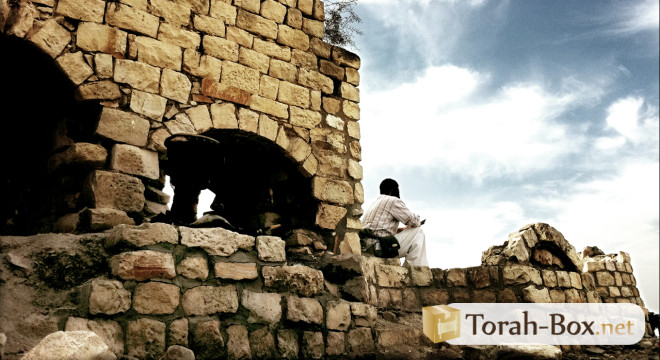
Messianic Times
Tzfat: The Quarrel that Delayed the Coming of Mashiach
The Arizal (Rav Yitzchak Luria Ashkenazi), the most outstanding Kabbalist of all time, lived in a cloister of houses encircling a courtyard in the holy city of Tzfat. Tzfat, a city imbued with a mysterious atmosphere, has been the cradle of Kabbalah study for over five hundred years. Other prominent figures settled in Tzfat, such as Maran Rabbi Yosef Karo (Beit Yosef and Shulchan Aruch), Rabbi Moshe Cordovero (the Ramak), Rabbi Shlomo Elkabetz (author of the song Lecha Dodi), and the famous orator Rabbi Moshe Alsheich (the Alsheish Hakadoch).
It is easy to imagine that in a city inhabited predominantly by Jews and privileged to host spiritual giants of such magnitude, there reigned an atmosphere of sanctity which reached awesome heights. The Ari delved in the study of the Kabbalah with his pupil Rabbi Chaim Vital. One day, the Ari announced to a selected group among his circle of students that they ought to hasten the Geula and put an end to exile.
These students settled down with their families in three rows of houses encircling a courtyard. On the eastern side, stood the Beit Hamidrash for Torah study and prayer services. The "friends"—the Ari's disciples at that time, were nicknamed "Gurei" or lion cubs after their master's death. Families were organized in such a way that women provided, and men spent most of their time studying Torah and practicing divine service.
Their course of study set up by the Ari was based on hidden wisdom. The Ari hoped to hasten the coming of Mashiach in his time.
The Satan's Intervention
The Satan, of course, opposed the Ari's strategy and used all his disrupting power to mess things up in the little courtyard. He used a weapon of unfailing systematic destruction: sowing controversy.
Out of the blue, a woman quarreled with one of her neighbors, other women got involved in the dispute and the former atmosphere of sanctity became openly hostile. The situation escalated to a point where women preferred barricading themselves in their homes, rather that meeting their neighbors in the courtyard. But children still wished to play with the neighbors' children.
The women strictly kept their children indoors to avoid all contact with the neighbors and even prohibited contact between the neighbors' children.
By nature, quarrels often drag others in their wake, even if no one knows the underlying reasons for the altercation. Seeing that their wives were angry, the men also fumed at their friends, based on their wives' arguments.
One day, at Torah study time, the Ari lowered his head beneath the table and sighed heavily: "I had hope," he told his students, "that the end of the exile had come and the Mashiach had arrived at Zion's gates. Yet, Heaven revealed to me that because of our mistakes, leading to the controversy that transpired among us, the moment of divine mercy and the coming of Mashiach have been delayed for a very, very long time." And he continued: "All this results from the dispute which assailed you. "
"Moreover, it was decreed that I have to pass on from the world for this reason ..."
His disciples were shaken; their Rav was young (36 or 38 years old according to most opinions). Immediately, everyone went home and did everything in their might to re-establish peace among neighbors; they strived to show increased signs of affection and unity. But the decree was not canceled. At the end of the year, on the 5th of Av, the Arizal sadly left this world.
Torah-Box.net Account
To access the entire Torah-Box.net website, sign up for free in less than a minute.
Shabbat Times
 Candle Lighting - New York
Candle Lighting - New York
Friday April 18th, 2025 at 19:20 *Shabbat ends at 20:23 *
change my location
* Times given as an indication, check the times of your community







